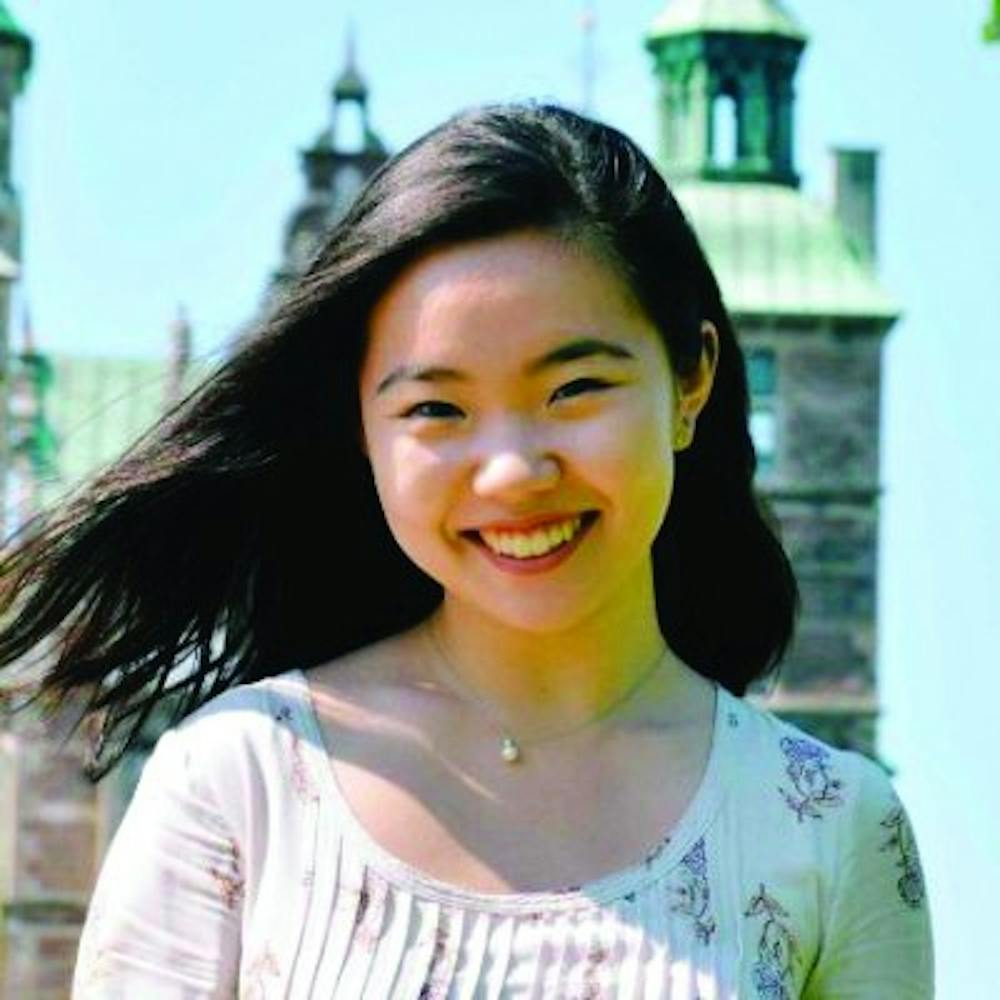I think it was in fourth grade when I truly came to grasp a sense of my “otherness.” It was a hot August day, and I was playing on the swings at my local community center. A girl with mousy brown hair and glasses came up to me and asked, “Why is your face so flat?”
I honestly didn’t have an answer. How can you explain why you look the way you do? Something as simple as an innocent question on that playground set the stage for the persistent feeling of alienation that I’ve felt while growing up among my white peers.
Growing up in small-town Pennsylvania meant that in my grade, there were only two other girls that looked like me. In my high school, which was half-black and half-white, there wasn’t a single Korean girl in any of my classes. I was placed into the ‘A track’ in middle school, where the normal smart kids — the white kids — learned in the same classrooms. As a result, I came of age among girls with porcelain white skin and brown-blonde hair as I stood among them, a strange Asian deviation in both appearance and heritage.
It was the microaggressions in school that made me feel so alone. In elementary school, a white boy I had a crush on pulled his eyes into slits with his index fingers and said, “I could never like a girl who looked like this.” Another time, I borrowed a jacket from my white friend and when I returned it, he told me it smelled like soy sauce, that it “smelled Asian.”
In other instances, white kids at school would tell me I “looked really Asian” whenever I wore my hair in a messy bun. In all these moments, I became acutely aware of the fact that I was not like everyone else.
During my years in school, my shame slowly spiraled into what I can see now was self-hatred. Looking back, I wasn’t proud of being American like I would insist on telling my friends — I was proud of acting “white,” of fitting into a Caucasian cultural identity.
This slow erasure of my Korean identity began in middle school, when I proudly proclaimed that I hated Korean pop music and TV shows. I remember the hot flush of embarrassment I would feel when my friends would come to my home and see Korean dramas on the television, asking why my mom didn’t watch American shows like their moms did.
In high school, when my parents would give my friends rides home from school, I would get upset at them for speaking to my friends in English because I was embarrassed of their Korean accents. When I got home from school and saw my small eyes and snub, flat nose in the mirror, I wished desperately that I would have big eyes and a tall nose like all the white girls at school did.
In Korea, it is common to get plastic surgery, which unsurprisingly helps girls look like Westernized versions of themselves. Offhandedly, Korean relatives mentioned that I could get double-eyelid surgery or maybe a nose job. I compromised by using double-eyelid tape, which creates a second crease on your eyelid, to try and get those bigger eyes, to try and look more white.
I still remember how when I was around 16 or 17, I beamed with pride when someone told me, “You’re basically a white girl.” I dated white boys in high school and surrounded myself with my white friends, safe in a cocoon of self-created privilege and thinly veiled disdain for my own identity.
But then came college, and for the first time in my life, I began to learn and live alongside people who looked like me. Compared to my high school in which I only saw black and white everyday, at Hopkins I met Asian people from all different walks of life — Chinese people, Japanese people, Indian people, Pacific Islanders.
In my a cappella group freshman year, I met three Korean girls who also became my friends. I began to have conversations, both casual and academic, with people who came from similar backgrounds as me and grew up being Asian in America.
It was in college, when I was faced with no choice but to confront my own Korean identity, that I slowly began to accept it. This is why I believe visibility is so important. In Hollywood, Asian actors face great obstacles breaking into the industry, and directors continue to cast white people in Asian roles, which only exacerbates the problem for Asian people like me who grew up seeing very few people who looked as they did.
When you grow up a minority among white people, it is easy to forget who you really are. Your alienation evolves into self-erasure as a form of self-defense, the complete and utter demolition of your own identity as you ‘whitewash’ yourself in order to survive in an environment full of microaggressions.
The process of reclaiming my Korean identity has been an arduous and recent one, and each day, I remind myself that where my family comes from is important. I want to apologize to my parents who had to try and understand why I was pushing my own heritage, and them, away. I want to apologize to myself for denying myself a chance to connect with my roots as I grew up. This semester, I am taking three classes in the East Asian Studies department. I am finding out who I am, to atone for the years lost.
The observations that I might be “so Asian” don’t bother me. I don’t try to be someone, or some race, that I am not. Rather, I want people to see me as someone who acts on the basis of my morals, values, and experiences, and not the prescribed notions of race. “You act so white” is no longer a compliment to me.





